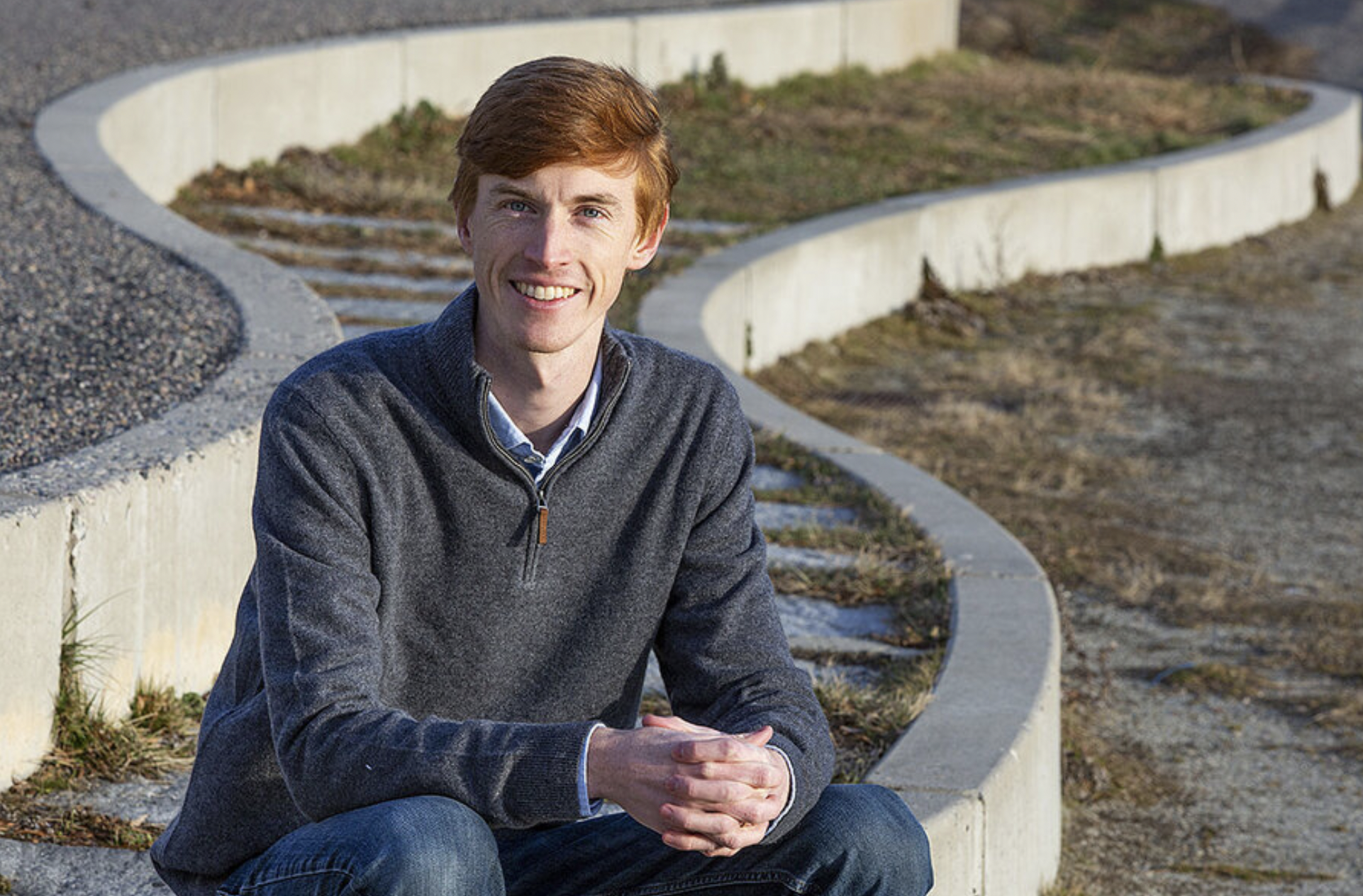“Elder Power” a Force in Virginia as More Retirees Step Up Climate Action Game
“Elder Power” a Force in Virginia as More Retirees Step Up Climate Action Game
By Elizabeth McGowan, Energy News Network, June 8, 2022
Photo usable. word count: 1788
RICHMOND, Va. — Bill Muth still remembers the angst that enveloped him one day in October 2018 while he listened to a radio broadcast about the anticipated onslaught of planetary havoc from climate change.
“Phew!” the Virginia Commonwealth University literacy professor fumed on his long-ago drive home to Richmond from Washington, D.C. “I hadn’t been paying close enough attention. I was absolutely floored.”
The shock of that United Nations report motivated Muth to begin folding carbon pollution themes into lessons and assignments he designed for teachers. It also gave him an inkling that he likely wouldn’t be settling into a quiet retirement.
Fast forward four years for living proof that the contemplative 71-year-old is indeed making purposeful noise.
At a James River overlook on the morning of June 3, he was steeped in Richmond’s Rally for Appalachia. It was at the tail-end of a two-week human phenomenon, Walk for Appalachia’s Future, amplifying the region’s demands for renewable energy and environmental justice.
“The MVP is DOA,” a lithe and chipper Muth hollered while beating out a rapid rhythm with two drumsticks on a hollow five-gallon plastic water bottle.
Roughly 50 voices, a chorus of young and old, repeated the line against the Mountain Valley Pipeline as they departed their staging area along the river that put Richmond on the map.
The call and response continued as the marchers toted banners along the Kanawha Canal, then slightly uphill for a few blocks.
We’ll not let you look away
Mourn the loss of soil and life
Confronting Appalachian strife
Marchers walk along the Kanawha Canal on their way to Wells Fargo from the James River waterfront in Richmond.
Multiple chants later, they arrived at their destination — the towering steel and glass Wells Fargo Bank at the downtown James Center. What’s now the corner of Cary and 10th streets is where canal boats turned around in the 19th century.
Why that spot? Wells Fargo is the No. 1 funder of the Mountain Valley Pipeline construction partners. In a nutshell, the protesters were pleading with the bank to “divest from the climate apocalypse” by halting the flow of money to the long-delayed and noncompliant MVP and instead “invest in a livable planet.”
“How does Charlie make his green?” Muth yelled as the demonstrators gathered on the grassy corner in front of the bank for a speech-filled, mock tribunal of Wells Fargo CEO Charlie Scharf.
He’s a fracking funding fiend.
How does Charlie make his moola?
Underwriting fossil fuela!
While rally attendees were a multigenerational mix, the majority skewed older. Like Muth, they’re members of Virginia’s relatively new chapter of Third Act, a national climate justice organization Bill McKibben launched last September so “experienced Americans” age 60 and up could commit what the late U.S. Rep. John Lewis classified as “good trouble.”
One of Third Act’s campaigns is Bug the Banks. The idea is to pressure the big four — Wells Fargo, JPMorgan Chase, Citibank and Bank of America — to stop lending billions to corporations that build oil and gas pipelines and other fossil fuel-centric projects.
In Richmond, Third Act elders seemed especially invigorated at the start of the rally when McKibben, the indefatigable founder of 350.org, joined them digitally “from an airport layover somewhere.”
No doubt young people are leading today’s climate movement, McKibben told his eager listeners. Despite that, “it’s not OK to take the direst problems the world has ever faced and turn them over to 17-year-olds.”
Along the rally route, Muth laughingly classified his drum-banging as “rage therapy.” But it was clear from a pre-event conversation that his commitment to nonviolent protesting is no joking matter.
“All of the science should have changed everything,” he said about the series of warnings released by the U.N. Intergovernmental Panel on Climate Change. “Why wasn’t this a collective epiphany?
“It still baffles me how an individual or a corporation could turn away. I’m trying to channel that bewilderment into anger and use it to motivate me into direct action.”
‘I can’t not do this’
Muth began inching toward activism as his teaching career was winding down. He retired last spring.
As much as he admired the stalwarts who wrote letters, lobbied politicians and spoke out at hearings ever since Mountain Valley was just a line on a map in 2014, he knew those activities wouldn’t sustain his peripatetic self.
Attending a training session on nonviolent direct action in West Virginia before the pandemic shutdown awakened Muth to the “upside to anarchy that I didn’t know existed.” Cities might have been the focal point for social justice shortcomings at the time, but he realized the suffering in rural regions was on par or even worse.
“I can’t not do this,” he said about his Third Act alliance. “We have to figure out how to convert despair into something else.”
For a reflective soul such as Muth, protesting isn’t as simple as donning a demeanor as impenetrable as steel and hopping from one demonstration to the next. He admitted to craving a tiny light, a small inspired way to move forward in such precarious times.
“We are at a cosmic moment,” he said. “We need a new way to make sense of that and also get perspective on who we are, who we need to be, and our relationship to Earth, to each other and to consumption.”
He has utmost respect for not only the heroic acts of the tree-sitters who temporarily blocked MVP construction but also fellow Third Acters such as Deborah Kushner.
Third Act activist Deborah Kushner and Virginia Commonwealth University environmental sociology professor Travis Williams listen to a rally speaker. Both of them also spoke at the event.
Gray is her superpower
Kushner, 67, who marched on Friday, has been arrested a handful of times for acts of civil disobedience, three related to gas pipeline construction and permitting in Virginia.
One of those incidents, in June 2021, shut down an MVP construction access road for a day. As part of a blockade, Kushner chained her rocking chair to the trunk of a decrepit police cruiser.
That arrest, sandwiched between two other East Coast climate protests orchestrated by “seasoned” demonstrators, recharged Kushner’s belief in elder power.
“Clearly, something was in the air,” said the Atlanta native who moved to Virginia 22 years ago.
That June 30 blockade prompted her to send a photo of her in the rocking chair to a McKibben staffer at the nascent Third Act national headquarters. Soon, she was invited to serve on a coordinating committee for what evolved into Virginia’s chapter of Third Act.
“Virginia was one of the first three state chapters,” she said. “We knew what we wanted to do.”
Kushner wasn’t always so bold. She had retired early from a state social services job in 2017 to dedicate time to climate action.
However, being in the spotlight is antithetical to Kushner’s reclusive nature so earlier on she worked behind the scenes to impede the Atlantic Coast Pipeline, which was canceled in July 2020.
Severe back pain in fall 2020 curtailed her activities until early spring 2021 when attending an anti-MVP rally in Giles County rejuvenated her spirit.
She was so emotionally rocked by the storybook loveliness of the Southwest Virginia mountains and streams that the epiphany moment is emblazoned in her brain.
“I realized that, ‘Oh my gosh, it’s my turn,’” she recalled about her rededication to direct action. “It hit me that this is our time. While some might see us as an oddity at a protest, elders have some sort of clout and we need to capitalize on it.”
Not only are elders a force to be reckoned with, she said, but they can offer reinforcement for younger protesters by exiting their comfort zone.
“I consider gray to be a superpower,” she said.
Baby boomers have a huge stake in pushing banks to pivot their investments toward clean energy, she said. After all, she added, older generations control 70% of the wealth tied to the big four banks.
“It’s not OK anymore to fund a climate disaster,” said Kushner, who moved to Staunton in Augusta County from Nelson County two years ago. “We can become a formidable army of people saying no because this is a fight for the planet.”
And that’s not the sole benefit, she emphasized. In-person gatherings provide a sense of community and solidarity as people try to emerge from the stifling online world of COVID-19.
Blocked at the bank
Members of Third Act’s Virginia chapter were no rookies upon arriving at Wells Fargo’s doorstep last Friday.
The master plan called for masked protesters to enter the lobby and drop flowers on a tarp. Then, Muth would deliver a two-page letter to the bank manager spelling out their ultimatum — that “underwriters of the climate catastrophe” stop channeling money to fossil fuel projects by the end of the year.
Since February, they had delivered that climate message to five other Wells Fargo and JPMorgan Chase branches in Northern Virginia, Blacksburg, Charlottesville and Richmond. Receptions by bank managers had been varied — one actually hid from them — but they had always been allowed to gather in the lobby to state their case.
Close to noon, however, they were barred from entering the expansive Wells Fargo lobby.
An employee informed Muth via phone that the bank was closed — even though other people continued to come and go. The situation didn’t change when Muth informed the bank that he was a Wells Fargo customer.
Not to be deterred, the protesters spread a trail of daisies on the red brick plaza and followed it to a space several feet from the bank’s front doors.
There, three James Place security guards, a trio of Richmond police officers along Cary Street and some stray bystanders witnessed a brief ceremony centered on songs and soil.
That dirt had been blessed earlier at a consecration ceremony shortly after McKibben spoke. Since late May, participants in Walk for Appalachia’s Future had collected vials of soil from iconic sites in West Virginia, Virginia and North Carolina, roughly along the route where the 303-mile Mountain Valley Pipeline has despoiled the landscape.
Muth also had been intent on delivering a quart jar of blended soil to the Wells Fargo manager.
Alas, it was not to be.
“Today exceeded my expectations,” Muth said about the rally, the walk’s penultimate event. Still, he was disappointed that a bank representative “couldn’t look me in the eye and talk.”
As demonstrators slowly dispersed, the gentle caveat McKibben issued three hours prior reverberated among them.
“I’m not going to promise you you’re going to win all of these fights,” the activist author had noted. “This is an ongoing battle and you are in the heart of it.”






